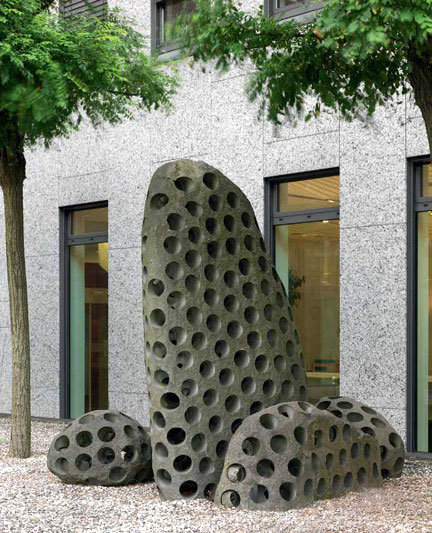Tony Cragg, Boulders, 1992

The relationship between nature and culture plays a key role in Tony Cragg’s work. He wants to create objects ‘that exist neither in nature nor in our functional world’. To this end he uses a wide range of natural and industrially manufactured materials. His artistic endeavours pick up and develop ideas sparked by Land art and Arte Povera in the 1960s.
Cragg, who was born in England but has lived in Wuppertal, Germany, for over thirty years, designed four groups of works that are displayed inside and outside the Bundesbank’s Düsseldorf Regional Office. The complex ensemble consisting of a number of components alludes to the local region and the industrial tradition of the Ruhr Valley. "Unsere Brocken" [Boulders] is a group of four perforated granite boulders that vividly epitomises the interaction between humankind and the environment. Cragg sees it as symbolising the artificial transformation of natural material. The mechanical perforation of the solid rocks highlights both nature’s vulnerability and the human race’s ultimate responsibility for its actions, while simultaneously revealing the petrified power residing in the boulders.